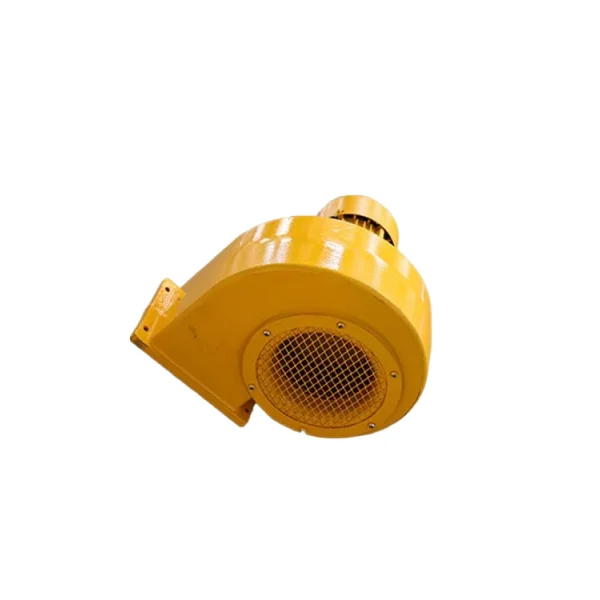In high-demand industrial environments, the quality and control of airflow can directly impact productivity, worker safety, equipment performance, and regulatory compliance. Among the many technologies that support effective ventilation, the industrial air blower ventilator remains one of the most vital. It is not only a cornerstone of industrial HVAC systems but also a crucial component in hazardous environment management, dust control, temperature stabilization, and process optimization. This article Shuoer explores the many aspects of industrial air blower ventilators, from their functional benefits to industrial applications.

The Functional Role of an Industrial Air Blower Ventilator
An industrial air blower ventilator is a high-capacity air-moving device specifically designed to control and circulate air in large and often complex industrial environments. Unlike standard fans or household ventilation systems, industrial blowers operate under high static pressure and are built to move massive air volumes efficiently.
The fundamental role of these ventilators includes:
-
Diluting and removing airborne contaminants: In processes such as welding, chemical mixing, spray painting, or grain handling, harmful particles and vapors are often released into the air. Without proper ventilation, these pollutants can accumulate, creating unsafe working conditions. Industrial air blower ventilators extract polluted air and replace it with clean, fresh air, ensuring compliance with occupational safety standards like OSHA and NFPA.
-
Managing temperature and humidity: In facilities where heat-generating machinery or chemical reactions are common, ambient temperatures can rise significantly. Industrial blowers help regulate this heat by promoting active airflow, reducing hotspots, and enhancing thermal comfort for personnel. In food processing or storage facilities, controlling humidity is equally critical to avoid mold, spoilage, or corrosion.
-
Improving process reliability: Certain manufacturing or scientific processes require stable environmental conditions. By maintaining constant airflow and pressure levels, blower ventilators help stabilize production parameters, reduce product variability, and enhance process efficiency.
-
Providing safe working conditions: In confined spaces such as storage tanks, tunnels, and basements, the buildup of gases like carbon monoxide or hydrogen sulfide poses life-threatening risks. A powerful blower ventilator can ensure adequate oxygen levels and prevent toxic gas accumulation.
These functional advantages make the industrial air blower ventilator an indispensable element in industrial infrastructure.
Industrial Applications of Industrial Air Blower Ventilator
The versatility of the industrial air blower ventilator means it is used across a broad array of industrial sectors, each presenting unique operational demands.
1. Heavy Manufacturing and Fabrication
In industries such as steel production, metalworking, or automotive assembly, air is continuously polluted by dust, smoke, and metal fumes. These contaminants, if not extracted efficiently, can hinder visibility, affect sensor readings, and cause respiratory issues. Industrial air blower ventilators are employed to extract contaminated air from welding booths, CNC machine enclosures, laser cutting zones, and heat treatment areas. Furthermore, cooling the air around high-speed machines prevents heat buildup that can damage sensitive components or alter material tolerances.
2. Chemical Processing and Refining
Facilities that handle volatile organic compounds, acids, or solvents require explosion-proof ventilation systems that can rapidly remove harmful fumes without sparking ignition. Industrial air blower ventilators used here must meet rigorous standards such as ATEX or NEC for hazardous location classification. These industrial air blower ventilators are often integrated with gas detection systems that trigger automatic airflow adjustments when toxic concentrations are detected. This proactive approach minimizes fire hazards and protects both personnel and infrastructure.
3. Energy and Mining Sectors
Underground mines, oil rigs, and power plants present some of the most challenging environments for ventilation. Toxic gases, explosive dust, and poor oxygen availability necessitate powerful ventilation systems. High-pressure industrial air blower ventilators can push or pull air over long duct networks in deep shafts or closed reactors. In thermal power stations, ventilators are used in boiler rooms, turbine halls, and generator enclosures to control temperature and manage airflow around high-voltage components.
4. Warehousing and Logistics Hubs
Warehouses may store large volumes of materials—ranging from perishable goods to volatile chemicals. Poor air circulation in these spaces can lead to temperature fluctuations, humidity build-up, and stagnant air that fosters mold or pests. Industrial air blower ventilators ensure continuous air movement, preventing hot or cold spots and maintaining environmental control in large-volume spaces that traditional HVAC systems can't efficiently manage.
5. Agricultural and Food Facilities
In the agriculture sector, industrial air blower ventilators are used in grain silos, poultry houses, and livestock facilities to manage dust, ammonia levels, and moisture. In food processing plants, stainless steel blower units are installed to meet hygiene standards, offering air exchange in environments with frequent wash-downs and strict microbial control protocols.
The industrial air blower ventilator is a powerhouse of environmental control, productivity enhancement, and safety assurance in modern industrial operations. Its ability to move massive volumes of air while adapting to diverse environmental challenges makes it a staple in any high-performance facility. By understanding its functional value, technical parameters, energy-saving potential, and proper maintenance strategies, facility managers and engineers can leverage this technology to optimize plant operations, comply with safety regulations, and reduce operational costs. Whether it's ventilating a mine shaft, purifying air in a chemical plant, or balancing humidity in a food processing unit, an industrial air blower ventilator is the silent force driving clean air and safe workspaces forward.
https://www.shuoermetals.com/Ventilator.html
www.shuoermetals.com
Wuxi Shuoer Intelligent Technology Co., Ltd.

